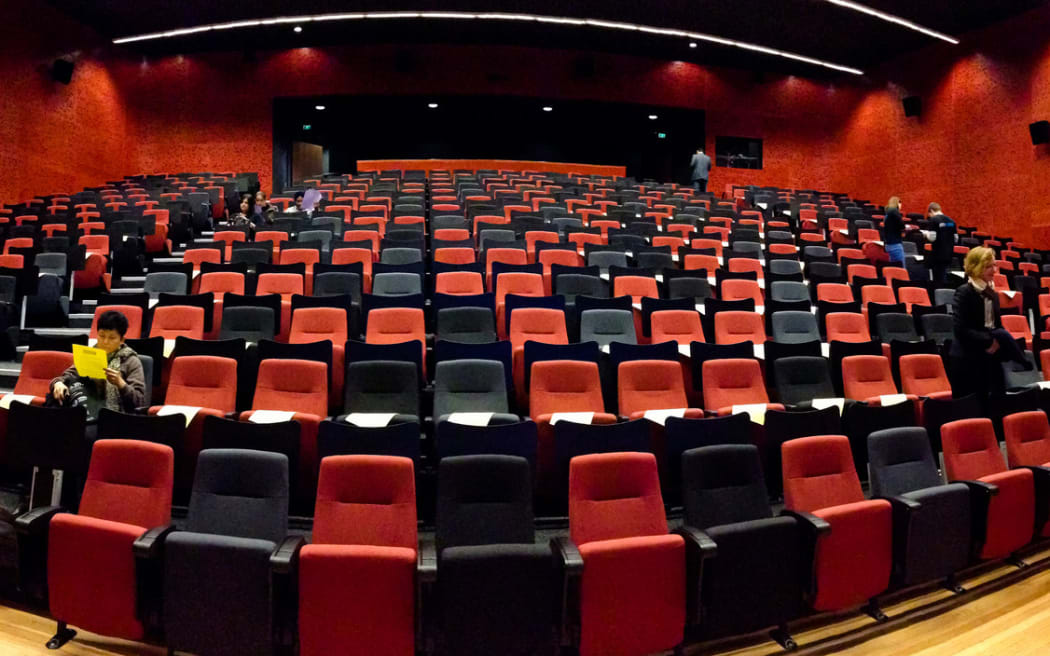Tertiary education staff say they are under increasing pressure to perform with smaller budgets and bigger classes, according to a new survey. What does that mean for students?

Tertiary staff say they are under more pressure to pass students, according to a union survey. Photo: Judit Klein/Flickr
Academics are passing below average students and turning a blind eye to cheating, as they crack under the pressure placed on them by New Zealand’s tertiary education providers, a survey has found.
And students say the pressure on staff is affecting the quality of education they receive.
Universities New Zealand has rejected the claims made in the survey and says the while universities put a lot of effort into supporting students, they do not lower standards to enable students to succeed.
The survey, released this week by the Tertiary Education Union, found 63 percent of 1006 respondents said they were under more pressure to pass students to meet government targets than they were 10 years ago.
Targets set by the Tertiary Education Commission for performance-linked funding of providers are based on qualification and course completion rates, student retention and student progression.
“They really don’t like it if we fail anyone - we don’t tend to fail many people at all,” a university tutor told The Wireless.
The stage one tutor said the only way she’d get away with failing a student of the science paper she teaches would be if they had close to no understanding of the subject at all.
The focus on keeping bums on seats, rather than quality learning, wasn’t good for the students, she said.
In a lecture theatre it’s easy to tell if a lecturer is focused on teaching, academic research, or of they’re bogged down by admin.
For students, this was a huge source of frustration, New Zealand Union of Students’ Association president Jonathan Gee said. “Students are seeing an increasing emphasis on bums on seats - which means less contact time with lecturers and tutors per student.”
Academic staff were obviously struggling to juggle a lack of resourcing with high workloads. “In a lecture theatre it’s easy to tell if a lecturer is focused on teaching, academic research, or of they’re bogged down by admin,” Gee said.
Last year, Gabrielle, a graduate social worker who studied at a regional polytech, said her class had major issues with academic staff.
“I found that there weren’t enough teaching staff for my degree, and that they were being pushed to do far too much for the time frames they were given - which resulted in pushing the students to do things in limited timeframes with high expectations.”
Gabrielle said she understood that by nature tertiary study was challenging and high pressure, but when teachers were obviously overworked, the learning environment suffered.
The Tertiary Education Union survey also found that staff were under pressure from employers to turn a blind eye to cheating, due to funding links to student retention and success.
“We have been pressured to change assessments, ignore cheating, pass students who are between 45 and 48 percent,” one staffer wrote. “Management re-enrol students who previously have not attended their classes and failed every paper they enrolled in - not just once but for several years.”
The Qualifications Authority has urged whistleblowers to come forward after allegations tertiary institutions are passing students who should be failed.
Academic staff have told RNZ they have seen marks mysteriously awarded to failed students, been ordered to re-mark exams more leniently and told to apply lower standards to foreign students.
They said the practices were happening because institutions wanted to meet the high pass rates required by the government and to hang onto students who provided valuable income.
TEU president Sandra Grey told RNZ that staff were being told to stand over students during tests to make sure that they could answer questions, or being told to give another examination, let them re-sit and re-sit and re-sit until they passed.
She also said institutions were finding more cheating among students, but staff were often asked to ignore it.
A report by the New Zealand Productivity Commission released this month found that current government funding arrangement incentivised tertiary providers to enrol as many “well prepared, easy to teach” students as possible. It also said universities were motivated to keep these students studying for as long as possible, “ideally in large classes”.
Universities New Zealand chairman Professor Stuart McCutcheon in a statement strongly denied that universities are relaxing standards for either entering university or passing courses.
Universities generally have been raising entry standards, he said. “For example, a decade ago at the University of Auckland, 35 percent of domestic students entering from school had grade point averages of more than five. This has risen to 55 percent this year, but pass rates have not changed significantly.
Prof McCutcheon said it didn't make sense that universities would raise entry standards and then tell staff to let everybody through.
Universities were concerned about student retention. Some students, particularly from low decile schools, are often less prepared as they might be, and this often includes Māori and Pasifika students, he said.
New Zealand’s universities all value their international reputation for delivering high quality education. All eight universities were ranked in the top 500 of the world, Prof McCutcheon said.
“We would not put this at risk. This is how we attract the best academics and researchers from around the world, which in turn attracts quality students - despite having the lowest income per student in the western world.”
On the allegations of students being passed when they should have failed, Prof McCutcheon said the Qualifications Authority, which has called on any staff with information to come forward, did not have jurisdiction over universities. But it might be appropriate for staff to complain to the authority.
"If people felt like that these concerns existed, if they had evidence of a real problem and there was a mechanism for them to go to NZQA and say, in the safety of a relationship directly with NZQA rather than their institution, 'my institution is doing this and doing that', I think that would be perfectly reasonable."


